Politics
World Day for Audiovisual Heritage: preserving meaningful moments
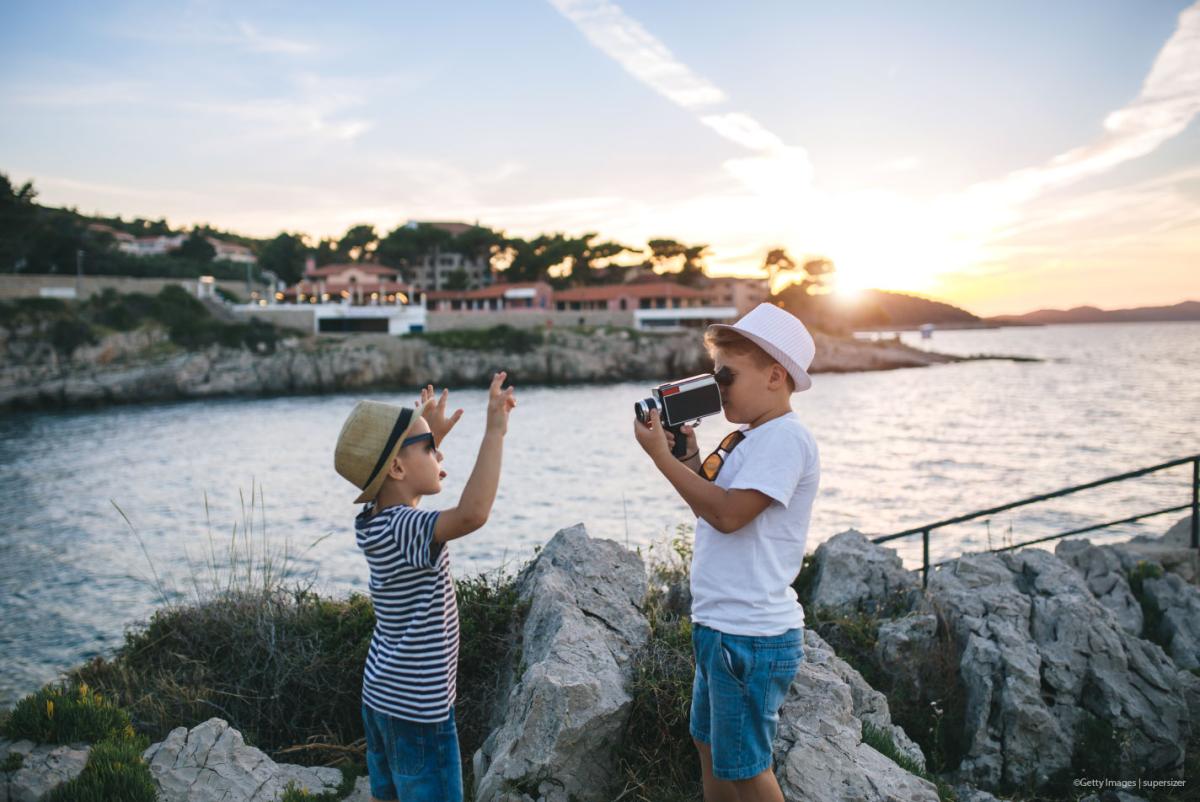
The World Day for Audiovisual Heritage is observed on 27 October to raise awareness about the significance and preservation risks of audiovisual materials.
Audiovisual archives serve as powerful storytellers, capturing the lives, cultures and histories of people from all over the world. They represent a priceless heritage which is an affirmation of our collective memory and a valuable source of knowledge, reflecting the cultural, social, and linguistic diversity of our communities. These archives not only deepen our understanding of the past but also help us appreciate the world we share today.
Conserving this rich heritage and ensuring it remains accessible to the public and future generations is thus vital. Historically, information was preserved through photographs, sheet music and books. Modern technology has revolutionised this process, allowing us to now record and share important moments through sound and video using different apps. Platforms like music streaming services, video-sharing sites and social media act as modern-day archives, storing a wide variety of audiovisuals.
The EU utilises different platforms and depositories for storing and sharing audiovisual content. Among them, the Audiovisual Library of the European Commission functions as central deposit for audiovisual materials intended for external communication, produced or purchased by Commission services. The library is responsible for the management, preservation, and accessibility of the collective audiovisual memory of the European integration process, available in both English and French. Since 1948, the library has catalogued over 250 000 videos, 500 000 photos and 8 500 audio recordings, covering all major steps of EU history. The collection continues to grow and is accessible to the public via the Audiovisual Portal.
In addition, Europeana is a web portal that aggregates audiovisual materials from over 2000 different institutions across Europe. This includes libraries, museums, archives, galleries and others, offering its users a unique opportunity to access a diverse range of content online.
The EU is committed to safeguarding and enhancing Europe’s cultural heritage through numerous policies and programmes. By preserving audiovisual heritage such as films, recordings, and photographs, we ensure that future generations can experience the richness of our shared past. Protecting audiovisual heritage is not just about safeguarding memories, but about keeping cultural diversity alive and accessible for all.
For more information
European Commission’s Audiovisual Service
Audiovisual Portal
The Audiovisual Library: Europe’s living audiovisual memory (video)
Europeana
World Day for Audiovisual Heritage
Source link
Politics
MSCA researcher David Baker wins 2024 Nobel Prize in Chemistry
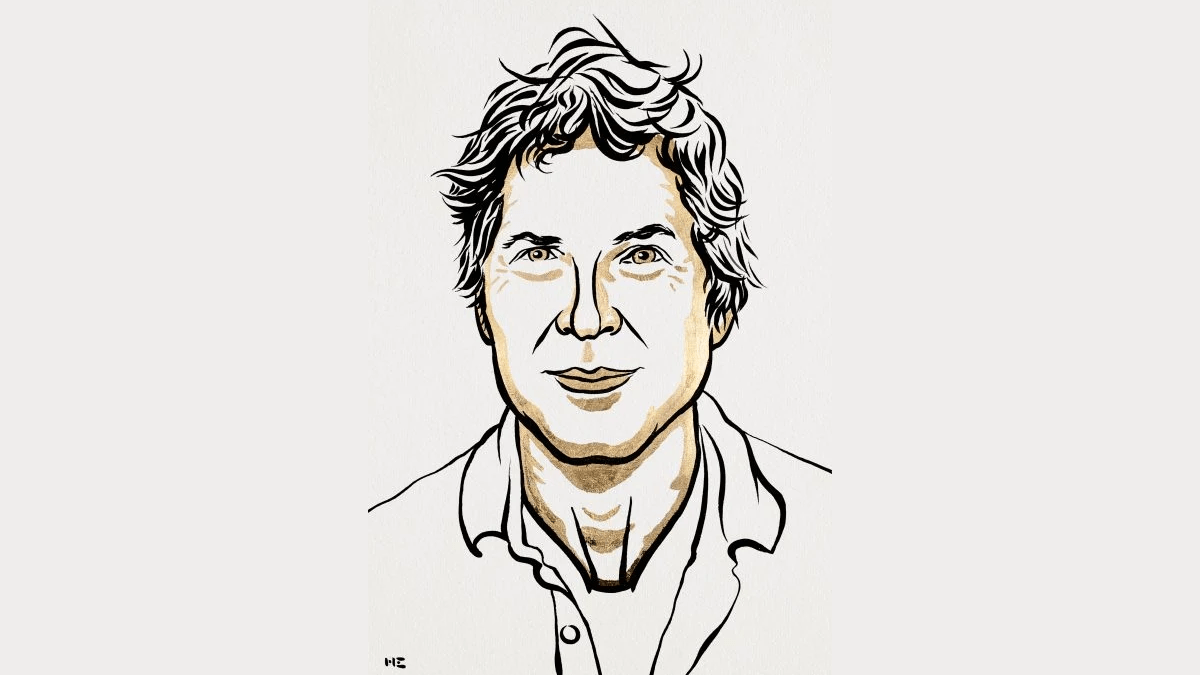
Dr Krausz has supervised MSCA postdoctoral researchers and coordinated several MSCA projects over the past two decades, including NICOS, ALPINE or ATTOTRON.
Both L’Huillier and Krausz obtained funding and cooperated through the MSCA doctoral training network ATTOFEL, and trained and supervised a number of doctoral researchers.
They also received funding through several projects funded under FP6, the 6th EU’s research and innovation programme.
2022
Nobel Prize in Physics, awarded to former MSCA supervisors Alain Aspect and Anton Zeilinger, alongside John F. Clauser, “for experiments with entangled photons, establishing the violation of Bell inequalities and pioneering quantum information science”.
Nobel Prize in Chemistry, awarded to former MSCA supervisor Morten Meldal, alongside Carolyn R. Bertozzi and K. Barry Sharpless, “for the development of click chemistry and bioorthogonal chemistry”.
2021
Nobel Prize in Chemistry, awarded to former MSCA supervisors Benjamin List and David MacMillan for their development of organocatalysis, a new precise tool for molecular construction described as “an ingenious tool for building molecules”.
2020
Nobel Prize in Chemistry, awarded to Emmanuelle Charpentier (Max Planck Unit for the Science of Pathogens), an MSCA alumna and principal investigator involved in the training of young researchers in the field of genomics in the MSCA project ENLIGHT-TEN ITN.
Dr Charpentier received the award alongside Dr Jennifer A. Doudna “for the development of a method for genome editing”, CRISPR/Cas9.
2017
Nobel Prize in Physics, awarded for the work of Rainer Weiss, Barry C. Barish and Kip S. Thorne “for their decisive contributions to the LIGO detector and the observation of gravitational waves”.
The MSCA project GraWIToN involved nine MSCA fellows who contributed to the preparation of the data on gravitational waves.
Nobel Prize in Chemistry, to Richard Henderson (Medical Research Council), the coordinator of the MSCA project Membrane Proteases. His work was honoured along with Jacques Dubochet and Joachim Frank “for developing cryo-electron microscopy for the high-resolution structure determination of biomolecules in solution”.
2016
Nobel Prize in Chemistry, awarded to Bernard Feringa, Jean-Pierre Sauvage and J. Fraser Stoddart. Bernard Feringa (University of Groningen) was in charge and supervisor of several MSCA projects such as ALERT while Jean-Pierre Sauvage (University of Strasbourg) was the supervisor for the MSCA projects NANO-PRESSES and FEMOS.
They received the Nobel Prize in Chemistry along with J. Fraser Stoddart “for the design and synthesis of molecular machines”.
2015
Nobel Prize in Physics, awarded to Takaaki Kajita (University of Tokyo) who was involved in MSCA projects as a participant. He earned the Nobel Prize “for the discovery of neutrino oscillations, which shows that neutrinos have mass”.
The Japanese researcher has participated in several MSCA projects promoting international collaboration, such as ELITES, SKPLUS and InvisiblesPlus.
2014
Stefan W. Hell (Max Planck Institute for Biophysical Chemistry in Göttingen, German Cancer Research Centre in Heidelberg) was an MSCA fellow at the University of Turku in 1996-1997. He then coordinated several MSCA Individual Fellowships prior to receiving the Nobel Prize in Chemistry along with Eric Betzig and William E. Moerner “for the development of super-resolved fluorescence microscopy”.
The MSCA fellowship saved my career because it bought me some time to perform a number of important experiments that supported the viability of my ideas and eventually find an institution that would support me in pursuing them.
Dr. Stefan Hell, 2014 Nobel Prize in Chemistry
Edvard I. Moser and May-Britt Moser (Norwegian University of Science and Technology, Trondheim) are former MSCA project coordinators. The two Norwegians received a Nobel Prize in Medicine and Physiology alongside John O’Keefe “for their discoveries of cells that constitute a positioning system in the brain”.
Jean Tirole (Toulouse School of Economics) was a supervisor of the MSCA project MASIEGE. He received the Sveriges Riksbank Prize in Economic Sciences in Memory of Alfred Nobel “for his analysis of market power and regulation”.
2013
James Rothman (Yale School of Medicine) was a supervisor in the MSCA project BFLDs. He received the Nobel Prize in Physiology and Medicine alongside Randy W. Schekman and Thomas C. Südhof “for their discoveries of machinery regulating vesicle traffic, a major transport system in our cells”.
Several fellows from the MSCA projects ITN ACEOLE, ITN TALENT, COFUND CERN, COFUND CERN 2010 and LHC-PHYS were directly or indirectly involved in the revolutionary sub-atomic particle discovery of the Higgs Boson.
This discovery led to the award of the Nobel Prize in Physics to François Englert and Peter W. Higgs.
2012
Serge Haroche (Collège de France and École Normale Supérieure) supervised the MSCA project ONDEQUAM. He received the 2012 Nobel Prize in Physics alongside David J. Wineland “for ground-breaking experimental methods that enable measuring and manipulation of individual quantum systems”.
2010
Konstantin Novoselov (University of Manchester) has received funding, supervised and coordinated several MSCA projects, including GRAPHENE, MEDICIS-PROMED, 2DMAT4ENERGYand PTMCnano. He received the Nobel Prize in Physics alongside Andre Geim “for groundbreaking experiments regarding the two-dimensional material graphene”.
Politics
Fethullah Gülen, Advocate for Peace and Dialogue, Passes Away at 86
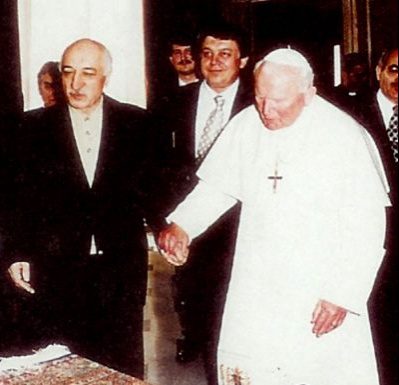
Fethullah Gülen, a prominent Turkish cleric and advocate for interfaith dialogue and education, passed away on October 21, 2024, in a Pennsylvania hospital at the age of 86. Known for his emphasis on peace, tolerance, and service to humanity, Gülen dedicated his life to fostering dialogue among religions and promoting moderate interpretations of Islam. His death brings to a close a remarkable chapter in both Turkish history and global Islamic thought.
Gülen’s legacy is shaped by his efforts to encourage altruism, education, and interfaith understanding. He founded the Gülen movement, or “Hizmet” (meaning “service” in Turkish), which built a global network of schools, universities, and charitable organizations that promoted these values. The movement emphasized that education and ethical leadership are essential to a peaceful, just society. Gülen’s teachings resonated with millions, not only in Turkey but across the world, as his message reached diverse communities through the network of schools and initiatives.
Despite his peaceful ideology, Gülen became a highly polarizing figure in Turkey. Once aligned with President Recep Tayyip Erdoğan, their relationship soured in 2013, and Gülen was later accused of orchestrating the failed coup attempt of 2016, charges he denied until his death. This led to his movement being attacked by the Turkish government, and many of his followers faced heavy persecution, hunting and kidnappings. Turkish representatives have also interefere with political affairs of other countries demanding that followers of Hizmet would not deliver public peaceful statements at Parliaments and official places. However, Gülen remained a staunch proponent of non-violence, consistently advocating for dialogue and mutual respect to resolve differences.
Throughout his life, Gülen was recognized for his commitment to peace, having received awards for his efforts in fostering harmony between different cultures and faiths. His outreach extended to institutions such as the Vatican and Jewish organizations, showcasing his dedication to bridging divides between communities often in conflict. His moderate stance on Islam, coupled with his focus on science, education, and civic responsibility, made him a revered figure among his followers.
Gülen’s passing leaves behind a complex legacy, marked by both admiration for his peaceful contributions and the controversies that shadowed his later years. Nevertheless, he will be remembered by many as a spiritual leader who sought to create a more compassionate, educated, and harmonious world.
A movement of Service
The Gülen movement, also known as Hizmet (meaning “service” in Turkish), stands out as a global initiative that focuses on education, interfaith dialogue, and social service. At its core, the movement seeks to promote values of tolerance, peace, and cooperation across various cultures and religious communities. Founded by Fethullah Gülen, the movement expanded rapidly, particularly through the establishment of schools and educational institutions across Turkey and in over 100 countries worldwide.
Focus on Education and Altruism
One of the most positive aspects of the Gülen movement is its emphasis on education. Gülen viewed education as a means to transform society for the better, advocating for schools that integrate academic excellence with moral values. The schools affiliated with the movement, known for their focus on science, technology, and mathematics, have provided quality education to students from diverse backgrounds, regardless of nationality or religion. This educational initiative is driven by the belief that well-rounded, educated individuals contribute positively to the peace and progress of society.
The movement’s schools not only focus on academic learning but also emphasize character building, with an ethical dimension that encourages students to become compassionate, socially responsible individuals. These schools often promote interfaith understanding and multiculturalism, making them influential in conflict-prone areas by fostering mutual respect and dialogue among different communities.
Promoting Interfaith Dialogue
A central pillar of Gülen’s teachings is his dedication to interfaith dialogue. He consistently encouraged open discussions between different religious traditions, including Islam, Christianity, and Judaism. Gülen himself initiated dialogue with global religious leaders, including the Vatican and Jewish organizations, with the aim of creating understanding and collaboration across religious divides. His efforts were particularly significant in a time when many regions of the world were grappling with religious conflict.
This commitment to dialogue is reflected in various conferences and forums organized by the movement, where people from different faiths come together to discuss issues of common interest such as peace, justice, and mutual coexistence. Through these initiatives, the movement has helped to break down stereotypes and foster a spirit of cooperation, which has been praised by scholars and leaders worldwide.
Social Services and Philanthropy
Beyond education and dialogue, the Gülen movement has made significant contributions in the realm of social services. Various philanthropic activities supported by the movement include disaster relief, healthcare, and assistance to underprivileged communities. The movement’s charitable organizations, both in Turkey and globally, have been at the forefront of humanitarian efforts, helping those affected by natural disasters and economic hardships. Their work has ranged from providing scholarships to disadvantaged students to offering medical aid in countries facing crises.
This altruistic element of the movement aligns with Gülen’s belief in serving humanity and addressing the practical needs of society through compassion and generosity. It has helped thousands of people improve their living conditions and access opportunities for personal development, which otherwise might not have been available to them.
Advocacy for Peaceful Coexistence
The Gülen movement is built on the idea that differences in religion, culture, and ideology should not be sources of conflict but rather opportunities for understanding and collaboration. This ethos has led the movement to advocate for peaceful coexistence, especially in conflict-prone regions where tensions between ethnic and religious groups often escalate into violence. By promoting dialogue and mutual respect, the movement seeks to create environments where diverse groups can live together peacefully.
The movement has often been lauded in international circles for its efforts to counter extremism. Its schools and institutions serve as models of moderation, where students are encouraged to think critically and embrace values of tolerance. This stance has made the movement an influential voice in promoting a balanced interpretation of Islam that aligns with modern, democratic values.
Overall, the Gülen movement’s contributions to education, interfaith dialogue, social service, and the promotion of peace have left a lasting impact on both Turkey and the global community. Despite facing significant political challenges and opposition, particularly in Turkey, the movement’s positive initiatives have garnered respect worldwide for their commitment to fostering understanding and bettering society through peaceful means. Fethullah Gülen’s vision of an educated, compassionate, and tolerant society continues to inspire many even after his passing.
Politics
New rules strengthen air quality standards in the EU

DISCLAIMER OPINIONS: The opinions of the authors or reproduced in the articles are the ones of those stating them and it is their own responsibility. Should you find any incorrections you can always contact the newsdesk to seek a correction or right of replay.
DISCLAIMER TRANSLATIONS: All articles in this site are published in English. The translated versions are done through an automated process known as neural translations. If in doubt, always refer to the original article. Thank you for understanding.
DISCLAIMER PHOTOS: We mostly used photos images that are readily available online, from free sources, or from the people promoting the news. If by any chance it happens that we have used one of your copyrighted photos, please do not hesitate to contact us and we will take it down without question. We do not make profits as this is a not for profit project to give voice to the voiceless while giving them a platform to be informed also of general news, and it is completely free.
-
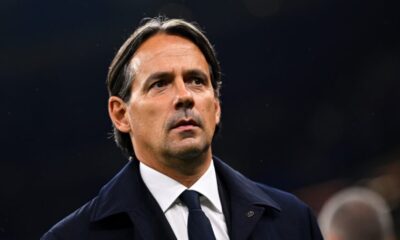
 Sports5 days ago
Sports5 days agoInter, Simone Inzaghi crosses fingers for Calhanoglu
-

 Africa5 days ago
Africa5 days agoShadows Over Democracy in Mozambique
-

 Sports6 days ago
Sports6 days agoJuventus, Thiago Motta compliments his team and is already thinking about the Champions League
-

 EU & the World4 days ago
EU & the World4 days agoLiam Payne’s Autopsy Report: Reported Drugs Found Including ‘Pink Cocaine’
-
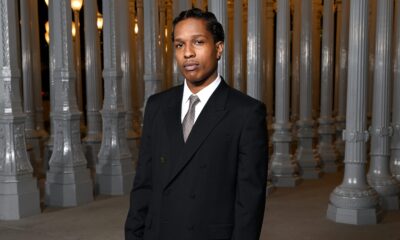
 EU & the World4 days ago
EU & the World4 days agoA$AP Rocky’s Trial: Everything to Know About the Charges & More
-
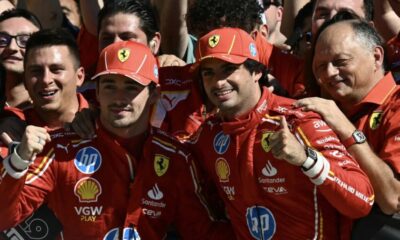
 Sports5 days ago
Sports5 days agoFerrari, Leclerc and Sainz elated: ‘Now the title’. The standings
-

 Sports6 days ago
Sports6 days agoJannik Sinner and Carlos Alcaraz enhance their rivalry and aim higher and higher
-

 Politics6 days ago
Politics6 days agoCreative Europe to support around 40 projects to boost literary translation in 2025








